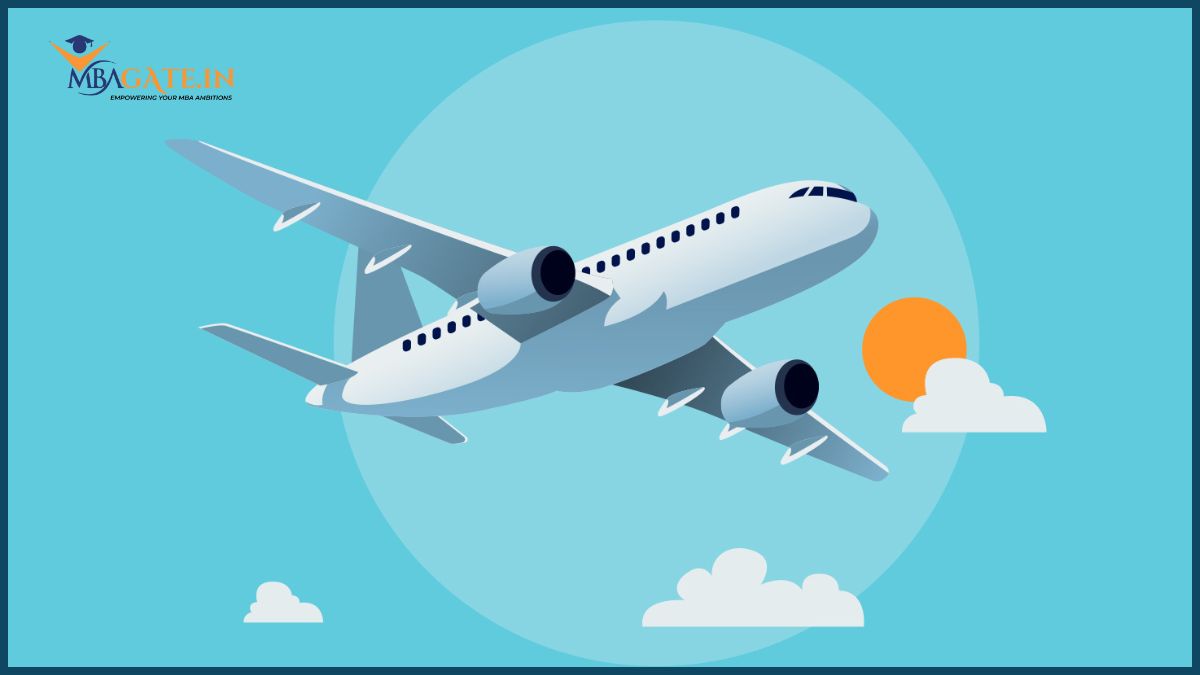MBA in Aviation Management
Table of Content
-
- + more items Show less
The program usually takes two years and addresses both general business and aviation themes. Such general business subjects include marketing, finance, operations, human resources and strategy. Some examples of aviation-specific themes include airport management, airline operations, air cargo, aviation safety and aviation law.
Students learn to schedule, operate and improve airline operations. They study airfield logistics, flight scheduling, customer service and safety standards. They also understand the economic and legal environment under which the aviation industry operates. This makes it possible for individuals to make informed decisions and solve real-world problems.
One of the main goals of this program is to prepare the students for leadership roles. Graduates can be airport managers, airline managers, air traffic controllers, aviation consultants or work for regulatory bodies. Others may work with logistics firms or multinational travel companies. With air transport and global connectivity on the rise, so is the need for professional management of aviation.
An MBA in Aviation Management course also comprises projects, internships and case studies. These provide the learners with hands-on experience and exposure to the industry. Many schools also invite guest lecturers from the aviation sector to share insights and trends.
To enter into this program, students normally require a bachelor's degree and can be required to sit for entrance tests like the CAT, MAT, XAT and GMAT or specialized university examinations. Certain institutions may further require those who already possess expertise within the field of aviation or related fields.
Numerous colleges across the globe teach this subject, with examples being colleges in India, the United States, the United Kingdom and the Middle East. Online options or part-time coursework are also available for working professionals in some cases.

Highlights
These are some of the key details of the Aviation Management Master of Business Administration degree. For the benefit of the interested students, several important details are provided, such as the course name, level, duration, and admissions procedure. After earning their degree, students also consult this information regarding the packages that businesses offer. Students who want to pursue an MBA in Aviation Management can review the details provided below.
What is Aviation Management ?
An MBA in Aviation Management is a speciality within the MBA program that blends knowledge about airlines and aviation with general business management abilities. Such a course of study is best suited for individuals who desire to work in the aviation industry. They can look for careers in leadership, management or logistics.
Aviation management is the department that deals with all the operations of the nation's airlines. Work opportunities exist in many types of services for students. They include managing flight schedules, safety regulations, coordination of airport services and customer satisfaction. Some of the roles, like aviation managers, are tasked with ensuring that everything in the company functions properly.
Why should someone opt for Aviation Management?
Aviation Management is now emerging and becoming more trendy than any other specialization. Aviation has increased in recent years, with India predicted to be the world's third-largest aviation market by 2030. The airlines link most countries of the globe. This course examines the fast-growing airline business.
The MBA in Aviation Management is the perfect career for anyone interested in the airline sector. These are available in the aviation industry, airports and even airlines. This course will introduce students to important general management principles such as finance, marketing and operations.
Students in this degree program will study problem-solving, enhancing business efficiency and making strategic choices. Students can select from a broad number of career options in the airline industry, which is worldwide. The airline industry is thriving right now as the economy expands and, subsequently, so does air travel demand. Consequently, there is a strong need for aviation professionals with management backgrounds.
Eligibility
Below are the admission requirements for MBA in Aviation Management:
A bachelor's degree should be held by students. The degree should be in any field and from any recognised university. Admission requires a least comparable CGPA or a passing rate of 50% or higher.
Candidates belonging to the reserved category (OBC/SC/ST) are eligible for a 5% relaxation from the mandatory 50% percentage.
Students can apply in their final year if they get a certificate from the principal of their college stating that they have no objections.
Entry into top universities needs a minimum score of 60%.
Students who wish to enter top colleges have to perform well on admission tests.
Admission Process
Students should satisfy the requirements of admission as shown above.
It is rare to find schools and universities that have at least one year of related experience as a requirement.
Experience is necessary in order to understand management studies.
People are able to develop the skills they require for future development.
The students will have to clear entrance tests like the CAT, XAT, CMAT, SNAP, GMAT and private university-based exams, as per the university requirements. The course admission will be provided on the basis of the cut-off or score.
All selected candidates are required to complete the online or offline admission form and provide all required documents, such as their Aadhar card number, residence proof, residence grade sheets 10 and 12 and graduation grade sheet.
Once they have passed the entry tests set by their various universities, students have to go through the group discussion and personal interview phases. The phases are meant to assess communication and problem-solving skill of students.
The final choice for institutes is made based on the total score, which is calculated based on the admission exam score, performance in GD/PI and work experience.
Performance in the entrance exam and interview results in admission to the MBA program in aviation management.
Students can check their documents prior to paying the fees and attending classes.
Subjects in MBA in Aviation Management
Graduates of an MBA program in aviation management have a variety of talents. These qualities include the capacity for problem-solving, strategic thinking, leadership and communication. Students can manage the challenging, ever-changing labour market and global business environment with the use of these skills. These courses are essential for students to understand in order to manage and lead the global workplace. The practical knowledge required to use the skills required to handle complicated circumstances in the corporate world is provided by other topics, such as airline economics projects and practicals.
*Note- These subjects are taken from the curriculum of UPES Dehradun and Galogotia University
List of Colleges with specialisations in Aviation Management/ Specialised PGDM/MBA in Aviation Management- Fees
The table lists prestigious private universities that provide a two-year PGP program for pursuing a career in aviation management such as MSRIM-MS Ramaiah Institute of Management, Bengaluru. Students interested in this program can look up additional colleges and their costs by using the table.
Colleges with specialisations in Aviation Management/ Specialised MBA/PGDM in Aviation Management: Average Package
To find out about further universities that offer aviation management, students who are interested in this degree must look through the chart.
Career prospects for MBA in Aviation Management
Students in India and throughout the world have greater placement opportunities with an MBA in Aviation Management. Aviation management is a fast-emerging sector nowadays. Many reputable universities, like IIM Kozhikode offer this course. An MBA in Aviation Management offers varied and ample work opportunities in various sectors. These sectors are education, government departments and non-profit organisations. Students are presented with a range of career options including Aviation Operations Manager, Director of Airport Operations, Aviation Project Manager and more. With critical thinking and business skills, they are able to fit into a range of fields and leadership challenges.
The most sought-after industries for graduates to be employed in include business, social enterprises, healthcare, hospitality and media.
Future Scope
As per the scenario, India may be the world's third-largest aviation market by 2025. Considering the aviation business's growing and increasing market, 2800 new commercial aeroplanes will be constructed in the next twenty years. MBA specialisations in the aviation industry are being set up by more renowned universities to prepare students for this fast-growing industry. The future of the aviation industry appears bright and positive. With an increase in the number of individuals traveling by air, there is a higher need for trained people who know how the aviation industry works.
An MBA in Aviation Management opens the door to numerous career opportunities in airlines, logistics firms, and other air transport-related businesses. Students of this course can work as airport managers, airline operations managers, aviation consultants and so on. There are a number of job opportunities in the fields of safety management, supply chain and aviation. With the development of new industries, like drones or green aviation, the need for qualified airline staff has grown considerably.
Moreover, this profession and degree in the aviation industry enable students to work all over the world instead of being confined to domestic employment. Students are able to seek a variety of career opportunities, such as airport administration and airline administration, based on their interests.
Conclusion
For those who are interested in business in the aviation sector, one can opt to study management. Studying an MBA in Aviation Management is an investment that brings together basic business skills with technical knowledge in the aviation or airline world. The degree equips its graduates for senior management, strategic planning and operational positions that are suitable for the fast-moving environment of aviation. The program equips individuals to resolve industry challenges, enhance airline operations and effectively manage airport infrastructures. The curriculum also focuses on critical thinking, a global mindset and regulatory competence, all essential factors in this highly regulated field. Lastly, an MBA in Aviation Management provides a range of career opportunities in airlines, airports, aviation consulting and government agencies, leading to long-term professional growth and success.
FAQs
No, it is not needed. Most schools do admit students from any undergraduate major. But if the student has experience or work history in aviation, logistics or tourism, it can be advantageous during admissions and employment placement.
A regular MBA emphasizes generic business issues like marketing, finance and management. An MBA in Aviation Management takes these core subjects and emphasizes their application in the aviation sector.
IIM Bangalore offers the program named GMAE certificate (General Management Program for Aerospace and Aviation Executives). IIM Ahmedabad offers a program named Advanced Management Program for Professionals in Aviation and Aeronautics.









